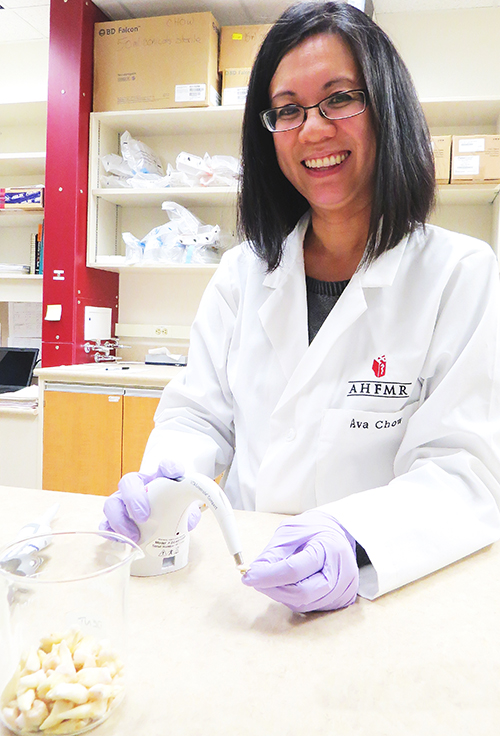
As a result of her research program, assistant professor Ava Chow has found that adding milk to tea significantly reduces the tea's ability to stain teeth.
The next time tea drinking enthusiasts steep another cup, they may want to consider adding a splash of milk as it has been shown to significantly reduce tea's ability to stain teeth.
Prevention of tea-induced extrinsic tooth stain was a research project designed by assistant professor, Ava Chow in the School of Dentistry as a way to introduce undergraduate dental hygiene students to research. But its findings have brought a whole new understanding to the term "double-double, please."
Casein, the main protein found in milk, was found to bind to the tannins - a water soluble phenolytic compound which is responsible for much of the staining properties of tea, and prevent teeth staining explained Chow.
"Tea is the second most consumed drink in the world and the way it's processed effects how teeth are stained. The more the tea is processed or oxidized, the higher its staining properties are," says Chow. "But we've found that the addition of milk to tea reduces the tea's ability to stain teeth."
Using already extracted human teeth as samples, Chow and her students first recorded and determined the colour of the natural teeth using a VITA Easyshade Compact Dental Spectrophotometer before exposing them to the staining procedure. They excluded teeth that had amalgams, carious lesions, and obvious cracks and fractures.
The teeth were then divided and placed in either a controlled solution of tea, or a solution of tea with milk for 24 hours at 37 degrees. Colour readings were then taken again.
"The results we found showed that casein is the component of milk that is responsible for the reduction of tea-induced staining. The magnitude of the colour change observed in our experiments is comparable to the colour change seen by vital bleaching products and more effective than whitening toothpastes," she said.
But, before dentists start recommending this to patients; Chow says the social context of tea may have to be taken into consideration.
"Adding milk to tea is a culture specific phenomenon. Some cultures may refuse to add it and others only drink tea with milk," she said.
Chow's research team included Graciela Garen, Rebecca Lee, Angela Bayne and Marguerite Tiangco.
Her findings are published in the November 2014 edition of the International Journal of Dental Hygiene.